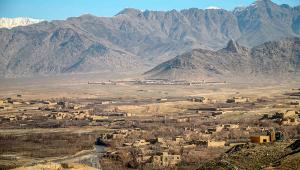Speaking at the Third International Conference on Financing for Development, which is intended to develop the funding framework for the post-2015 development agenda, Clark called for a bold and transformative agreement.
This was needed to help countries tackle the challenges of eradicating poverty, environmental degradation, vulnerability to natural hazards, and protracted conflicts, she told the conference.
“All sources of finance, public and private, domestic and international are needed,” Clark said at a conference plenary session.
“We must ensure that all countries, and in particular the poorest and most vulnerable, are able to access the financing opportunities which are available.”
The four-day meeting, which opened yesterday, has brought together governments with representatives from civil society and business to develop a framework for international cooperation as part of the new global Sustainable Development Goals. These will be adopted at a conference in New York in September to replace the expiring Millennium Development Goals.
Clark said that official development assistance (ODA) would remain essential for many countries, including the least developed, small island developing nations and landlocked developed states.
“The challenge is to ensure that different sources of finance complement and reinforce each other,” she said. “We need ODA to have more catalytic impact, including through support for building the capacity to access a wide range of financing instruments, including climate finance.”
It must also be used to boost domestic capacity for inclusive growth and development through a focus on sectors that will generate “decent work” and create the virtuous cycle of rising incomes.
“The financing needs to meet internationally agreed development goals and national aspirations are great,” she concluded.
“Yet our world has more wealth, more knowledge, and more technologies at its disposal than ever before. Enabling all countries to access these drivers of development has to be at the heart of the Addis Ababa Action Agenda, and realising the vision of the Sustainable Development Goals to protect our planet and to leave no one behind.”
At the meeting, multilateral development banks and the International Monetary Fund have set out a plan to extend more than $400bn worth of financing over the next three years to support the Sustainable Development Goals.













